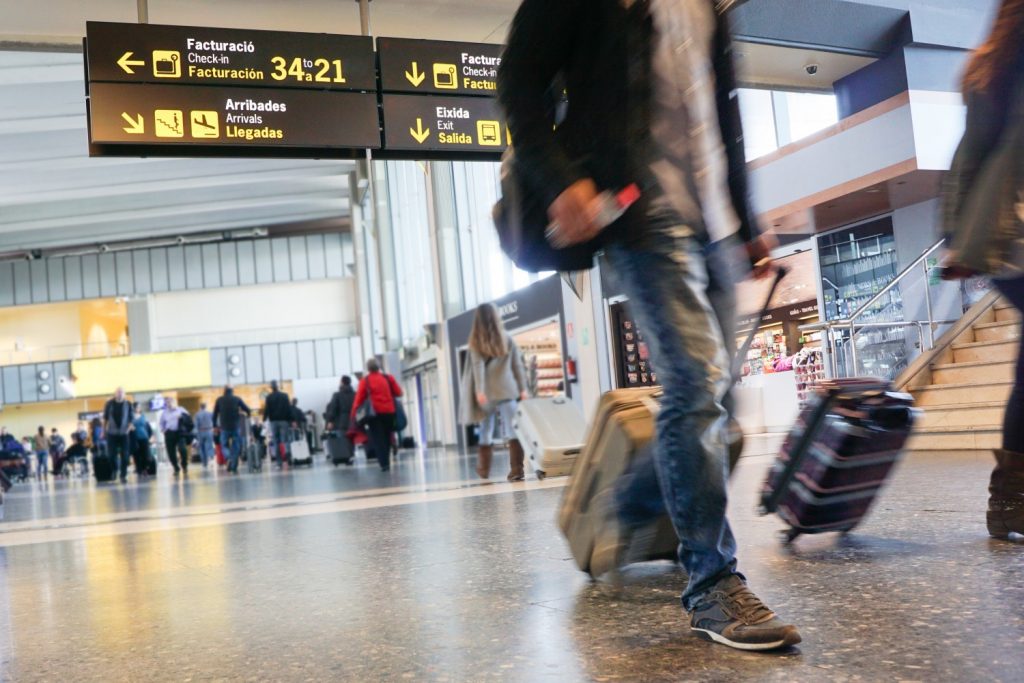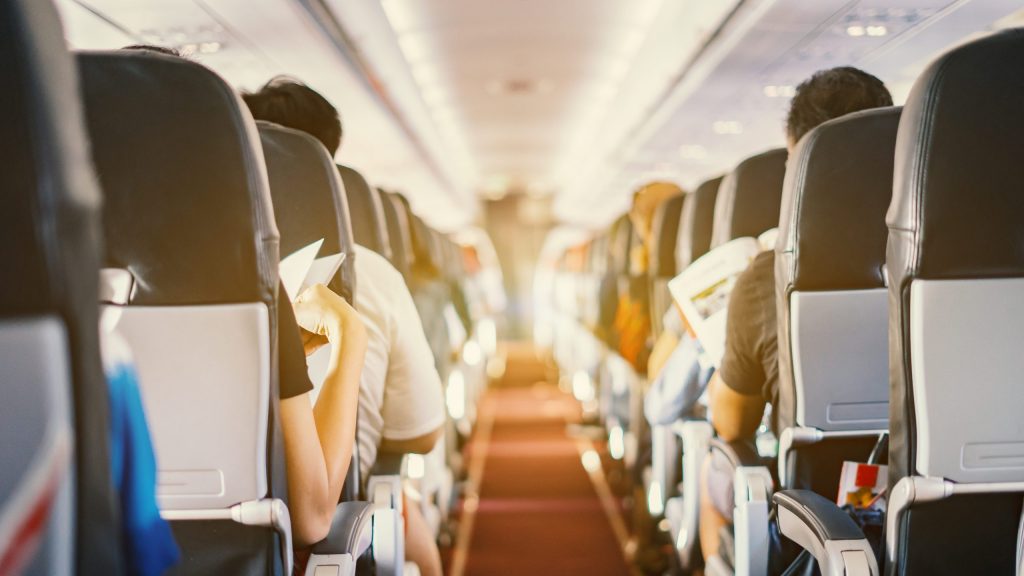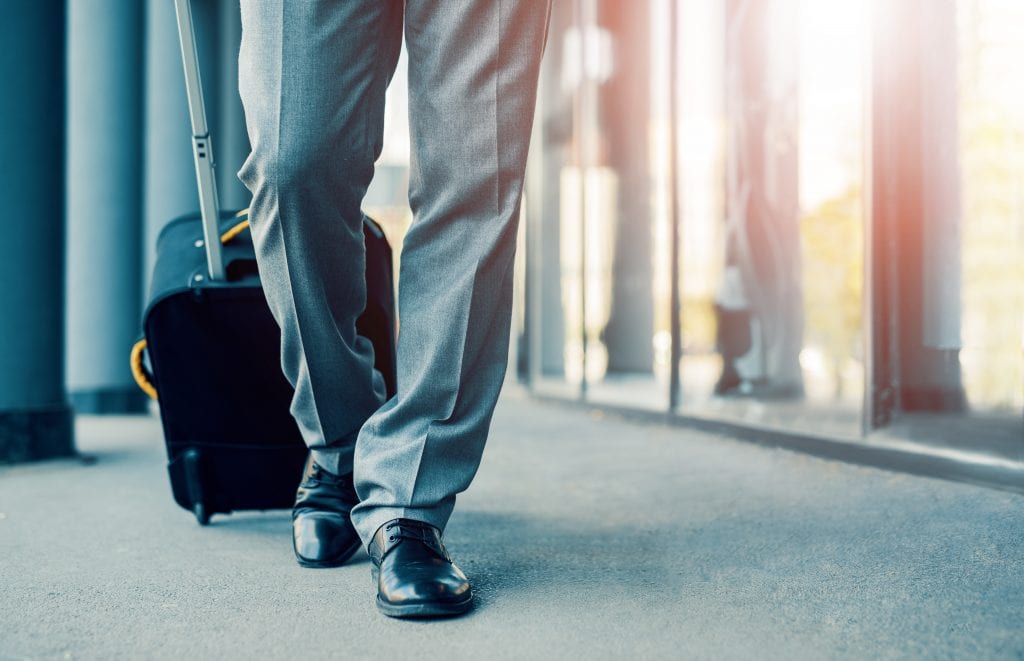You researched, you planned, you packed — but then life threw you a curveball and the airline canceled your flight. Cancellation happens on about 1%-2% of the 25,000 flights that are scheduled to depart daily from U.S. airports. That’s around 500 flights canceled every day!
Your gut reaction might be to flip out — and believe me, we understand! But there’s a better, calmer way to go about rearranging your plans. You also might have more rights than you think.
Regardless of the reason behind the airline’s cancellation, federal law entitles passengers to a full cash refund if they choose not to fly, according to the U.S. Department of Transportation. This means that you will get your money back whether the airline didn’t have enough crew to run the flight, a mechanical problem occurred or a major storm caused officials to deem flying through it unsafe.
The rules around delays are somewhat murkier, however. Most airlines are not required to offer refunds for these and to some extent, they set their own rules for dealing with them.

But, you do have options. If you’re already at the airport, you can go the traditional route and stand in line for an agent, but these lines are often long and not very efficient. Plus, the more you have to wait, the longer it may be before you get your travel plans back on track.
Install the Airline’s App on Your Phone
Most major airline apps let you rebook your flight for free — immediately. So, if you know you are flying soon, we recommend installing and signing into the airline’s app ahead of time. Make sure you have easy access to your password and ticket confirmation email to reference your reservation code if your plans go awry.
You can also go to DOT’s Cancellation and Delay Dashboard for a quick peek at what type of compensation your airline offers. Some airlines, like American, Delta and United, automatically rebook passengers on upcoming flights, but these flight times and routes might not be ideal. They may also rebook people on partner airlines’ flights that have seats available.
However, you have the right to refuse any alternative arrangements the airline offers and still receive a full refund, so don’t feel stuck with someone else’s plan B.

If you’re in another country or have trouble accessing the app, most airlines allow you to text, DM or use WhatsApp to communicate. If you’re flying with your partner who is booked under the same travel arrangements, it might be worth both of you attempting to contact the airline simultaneously using different methods to see who can resolve things the fastest.
Beware that if you opt for a travel voucher instead of a refund, there may be blackout dates and restrictions.
Determine Whether You Need a Hotel
If you had planned to fly at the end of the night, you may want to book a nearby hotel room as soon as possible. Most other major airlines, except for Frontier, will cover hotels for overnight stays caused by a cancellation as well. They will cover transportation back to the airport if that’s needed and some will also pay for your meals.
For example, American Airlines will provide a voucher or reimbursement for a hotel with available rooms if they’ve caused travel disruption and can’t board passengers before the morning, as long the passenger doesn’t reside in that city. They will offer transportation to the hotel and back by shuttle or a third-party transportation service or cover costs through a voucher or reimbursement. The airline provides meal vouchers if your delay is three or more hours after your scheduled departure.
Learn the Lingo
Not all delays or flight time changes are treated equally. Here are a few definitions to help you determine what you might be entitled to (or not) based on the terminology.
Significantly Delayed
The term “significantly delayed” varies by airline but generally refers to delays of three or more hours. In certain cases where a domestic flight is delayed for several hours, passengers are entitled to receive refunds. However, since the Department of Transportation doesn’t have a set definition for this term, it’s up to the individual airlines to determine how long this time period is.
For United, if a flight is cancelled, delayed more than an hour or you missed a connection, you may be able to rebook on another United flight for no additional cost. However, only JetBlue and Alaska Airlines offer a credit or travel voucher when this type of delay happens and none offer cash compensation.

Schedule Change
A schedule change means you booked a certain flight time and the airline adjusted it. This is usually done well in advance of the actual departure and you are notified by call, text or email. In general, you aren’t entitled to any compensation unless the change results in a significant delay, but this depends on many factors, including delay length, flight length and your personal circumstances.
For United, if a flight’s schedule changes by more than 30 minutes, passengers can rebook another United flight at no additional cost as long as the plane leaves from the same airport within 24 hours of the original flight time.
Controllable and Uncontrollable Delays
In cases like inclement weather at your outbound airport, rebooking a flight on an alternative airline doesn’t usually make sense. An agent might be able to help passengers find nearby hotels but the airline typically doesn’t cover the cost of the stay or any meals during this type of uncontrollable delay.
Just keep in mind that if you accept a new flight time, whether it’s offered to you automatically by the airline or you manually reschedule it yourself on an app or with an agent, you won’t be able to ask for a refund later. Accepting a new flight means agreeing to a new contract.
On the other hand, some delays are controllable, and in those cases you should be able to rebook your flight for no fee, get hotel accommodations and have your meals paid for if there is a significant delay.
Filing a Complaint
If things have gone south and you want to file an official complaint, skip using the messenger app on the airline’s website. Instead, email customer service and copy a C-level executive. (Look on LinkedIn to find the appropriate people.) Keep your correspondence based on the facts, not every nitty-gritty detail, and explain how the airline’s change impacted your travel plans.
Show proof whenever possible. If an airline claims a flight couldn’t take off due to bad weather at the arriving airport, but you see several other flights landed around the same time, screenshotting this evidence can help you prove your case.
The DOT requires airlines to acknowledge consumer complaints within 30 days of receipt and respond within 60 days. If the matter isn’t resolved to your satisfaction, you may also lodge a complaint with the DOT itself. Documenting delays and cancellations through additional apps and online sites may be beneficial in the long run as well.

Know that it might take some time — and unfortunately, some effort, too. Even with proof, it may take multiple follow-ups to receive compensation. If your claim is denied, this doesn’t necessarily mean it’s a dead end.
Services like AirHelp, which provides legal representation to passengers for a fee, can help you win back what’s rightfully yours. (Just be sure to read about the costs entailed before pulling the trigger. It’s usually between 35%-50% if the case goes to court.)
While these flight cancellations are often frustrating and seem to be on the rise, knowing what you’re entitled to as a passenger can help squash additional stress.
This story originally appeared on Don't Waste Your Money.


